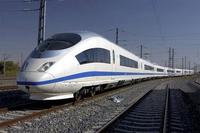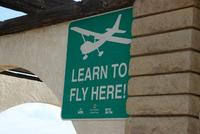-
DHS interested in systems for covert body scans
DHS has signed contracts for the development of mobile and static systems that can be used scan pedestrians and people at rail and bus stations and special event venues — apparently at times without their knowledge; DHS moved to develop the technology as part of an effort to bolster the ability of law enforcement personnel to quickly detect concealed bombs and other explosives on individuals
-
-
Sector Report for Thursday, 3 March 2011: Transportation Security
This report contains the following stories.
Plus 1 additional story.
-
-
New association for maritime security industry formed
Maritime security consultant Peter Cook recently announced the formation of the Security Association for the Maritime Industry (SAMI); SAMI will help establish rules and regulations in the fledgling maritime security industry; the maritime security industry has grown rapidly in recent years, but has suffered from lack of regulation and rapid expansion; the industry’s reputation has been tarnished with incidents of hired security firms abandoning ships when pirates attack leading to long periods of captivity for the ship’s crew; to prevent these incidents from occurring and to uphold the reputation of the industry, SAMI will vet maritime security companies, establish standards, and ensure that its members comply with established standards
-
-
Man boards plane with three box cutters at New York's JFK
On Saturday 26 February 2011, a man slipped passed TSA security screeners at New York’s JFK Airport and boarded a plane with three box cutters; the box cutters were only discovered after a flight attendant saw them fall out of his bag; two TSA agents and their supervisor did not see the blades as they passed through an X-ray machine; the flight was grounded for three hours as the plane’s passengers and crew members were evacuated and searched while the plane was swept for bombs; the two agents and their supervisor “will all be disciplined and undergo remedial training”; the passenger was not charged with any crime
-
-
Maryland wants Florida's high speed rail funds

As Republican governors in Florida, Wisconsin, and Ohio reject federal funding for high speed rail projects, states like Maryland are clamoring to receive those funds; Maryland Senators Benjamin L. Cardin and Barbara A. Mikulski sent a letter to Transportation Secretary Ray LaHood requesting that $2.4 billion dollars in high speed rail funding originally designated for Florida be redirected to projects in the Northeast Corridor; each year 250 million rail passengers use the corridor and passenger use is projected to increase by 60 percent by 2030; the White House plans to spend $53 billion on high speed rail projects over the next six years and $8 billion in the coming fiscal year alone
-
-
TSA and ICE to cut down on alien flight lessons

Several months after immigration officials arrested Thiago DeJesus, an immigrant owner of a flight school in Stow, Massachusetts, and thirty-three of his Brazilian pupils for being in the United States illegally, officials have not instituted new safeguards to prevent something similar from happening again
-
-
TSA Puffer machines pulled from service
The high-tech $150,000 Puffer machine was designed to blast passengers with a puff of air and then analyze the particles it shook loose searching for any sign of explosive materials; the dirt, debris, and humidity commonly found in most airports rendered the units useless and were determined to rarely work; after spending nearly $30 million to buy and maintain 94 Puffers, TSA last year retired them from service
-
-
Border bottlenecks hamper trade
Last year, U.S. exports to Mexico totaled $163 billion, and imports from Mexico totaled $229.6 billion; nearly 80 percent of that trade crosses through land border ports on trucks and railcars; the 1.8-million strong Border Trade Alliance says bottlenecks at border crossings hamper this trade and make it more costly to grow it; the Alliance urges Congress and the Obama administration to invest in border ports of entry, including hiring more staff; Obama’s proposed 2011 budget includes only 300 new Customs and Border Protection officers, while Republicans propose shrinking the Border Patrol by 870 agents
-
-
Studying wait times at modified truck fast lane
Western Washington University has received $49,000 to conduct field research on wait times and lane reconfiguration at the U.S.-Canada border; the university’s Border Policy and Research Institute will collect and analyze data on wait times as part of a pilot to examine alternative use of the dedicated Free and Secure Trade truck lane at the Blaine crossing
-
-
High-speed derailment

Sophisticated high-speed commercial trains such as France’s TGV, Japan’s Bullet trains, and China’s Shanghai Maglev that travel up to 311 mph are leaving the United States in the dust; this week, President Obama proposed a 127 percent increase on public transit spending to create jobs and stimulate the economy despite Republican plans to reduce the $1.5 trillion deficit; Republican lawmakers, governors say the development of high-speed rail should left for the private market
-
-
Russia spending $1.6 billion to bolster transportation security
The Russian government announced that it would spend about $1.6 billion over the next three years to beef up transportation security; roughly $410 million will be spent on increasing metro security; Transportation Minister Igor Levitin says the metro is the weakest link in security efforts; there are 300 entrances in the Moscow metro alone; last year two female suicide bombers detonated bombs in Moscow’s busy metro system killing forty people and injuring more than 100; Moscow has the second busiest subway system in the world, second only to Tokyo
-
-
Sector Report for Thursday, 17 February 2011: Transportation Security
This report contains the following stories.
Plus 2 additional stories
-
-
New DHS budget includes more money for airport scanners
As lawmakers are trimming the budgets of many programs and agencies in an effort to reduce the deficit, funding for airport scanners has increased; overall discretionary funding for DHS has grown 0.7 percent to $43.2 billion, and includes more funding for full-body scanners; the Obama administration’s budget request allocates $77 million for the purchase of 275 additional full-body scanners; each scanner costs $280,000 and the additional order will bring the total number of scanners deployed at U.S. airports to 1,275; the Transportation Security Administration (TSA) has introduced new software that projects a non-gender specific image to ease concerns over privacy issues that sparked a backlash last year
-
-
Arizona legislators thwarted by TSA
The TSA has thwarted the effort by Arizona legislators to require airports statewide to hire private firms instead of relying on the federally procured screening agents; Phoenix officials support TSA chief John Pistole’s rejection of all incoming security contracting proposals
-
-
Chechen warlord claims responsibility for Moscow airport bombing
Doku Umarov, the notorious head of the Chechen extremist group Caucasus Emirate, claimed responsibility for the 24 January suicide bombing at Moscow’s airport that left thirty-six people dead and 180 injured; Umarov promised further attacks and spoke of his organization’s ability to carry out operations “whenever and wherever [they] want”; Umarov’s group is also responsible for the March 2010 bombing in the Moscow Metro and derailing a train in November 2009; Caucasus Emirate seeks to establish a Muslim nation in the Caucasus region and expel Russia
-
More headlines
The long view
Calls Grow for U.S. to Counter Chinese Control, Influence in Western Ports
Experts say Washington should consider buying back some ports, offer incentives to allies to decouple from China.
